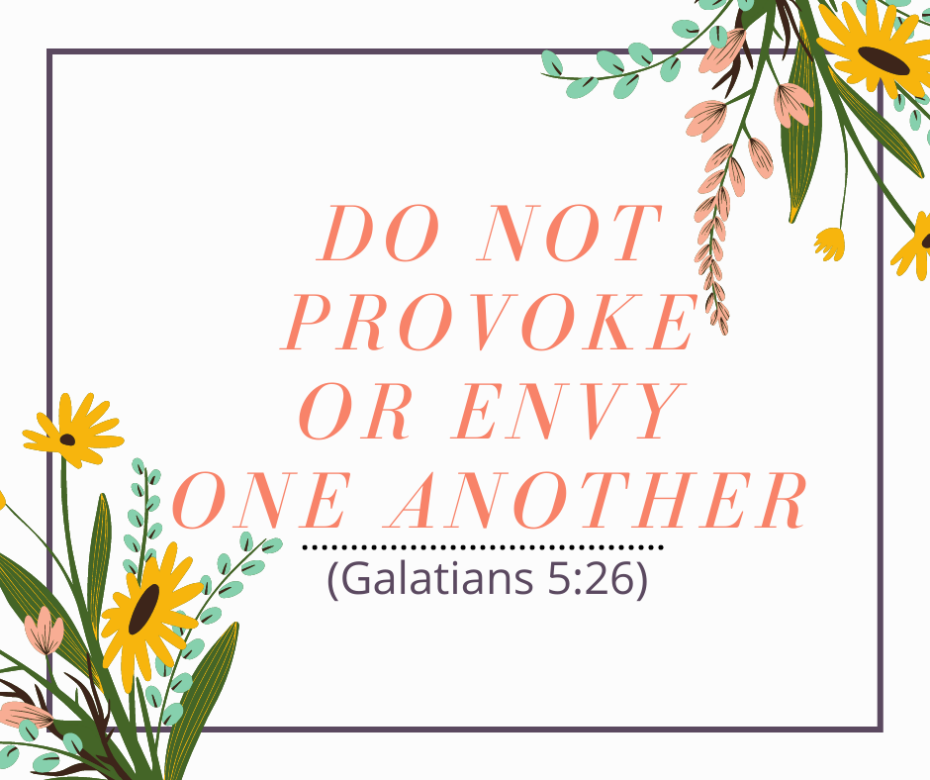But the fruit of the Spirit is love, joy, peace, longsuffering, kindness, goodness, faithfulness, gentleness, self-control. Against such there is no law. And those who are Christ’s have crucified the flesh with its passions and desires. If we live in the Spirit, let us also walk in the Spirit. Let us not become conceited, provoking one another, envying one another (Gal 5:22-26).
Here are two more “one another” commands—do not provoke or envy one another.
That shouldn’t characterize normal church life.
Instead, the Christian life flows out of crucifying the flesh and living in the Spirit, which will then produce spiritual fruit. And notice how all the fruit Paul lists are directed towards other people (e.g., the church). You love your neighbors, exercise longsuffering towards people who challenge your patience, are faithful and kind to others, etc. You cannot be longsuffering, peaceful, or faithful all on your own. It takes other people.
In other words, life in the Spirit has community-forming power. That is what the fruit is meant to do—not only create community but make it stronger through the exercise of love and kindness and gentleness towards others.
However, a community can be fragile. As Paul warned, church life can be threatened by conceit (or vainglory [KJV] or boastfulness [NASB]). What does it mean to be conceited? Moo explains it this way: “It connotes the attitude of persons who think they have a right to praise and renown when, in fact, they have no such right” (Moo, Galatians, p. 373).
You can think of conceit as having an active manifestation and a passive motivation.
It is manifested by “provoking one another.” Betz suggests Paul was using sports or military imagery with “two contestants who engage in hostilities” (Betz, Galatians, p. 294). Josephus used the same Greek word to describe Goliath’s challenge to Israel (Ant. 6.177). To provoke one another means calling people out so they will display the works of the flesh instead of the fruits of the Spirit. There are aspects of honor culture at work here that we do not have in the West. However, do you remember the Back to the Future series and Marty McFly’s Achilles’ heel? He hated being called chicken. “What’s wrong, McFly? Chicken?” That’s all it took to provoke him. “Nobody calls me…chicken.” Some people are good at pushing buttons—and we all have those buttons, don’t we?
Why do people do that?
According to Paul, the reason is envy.
The vainglorious person is jealous because he thinks unworthy people are getting the accolades he deserves. So instead of exhibiting the fruits of the Spirit that build up church life, his envy produces works of the flesh that tear it apart.
When the Spirit works in your life, He will work on the attitudes that put the spotlight on you instead of on Christ. As Paul reminds us, the solution is not to satisfy a desire for selfish ambition but to crucify it.


